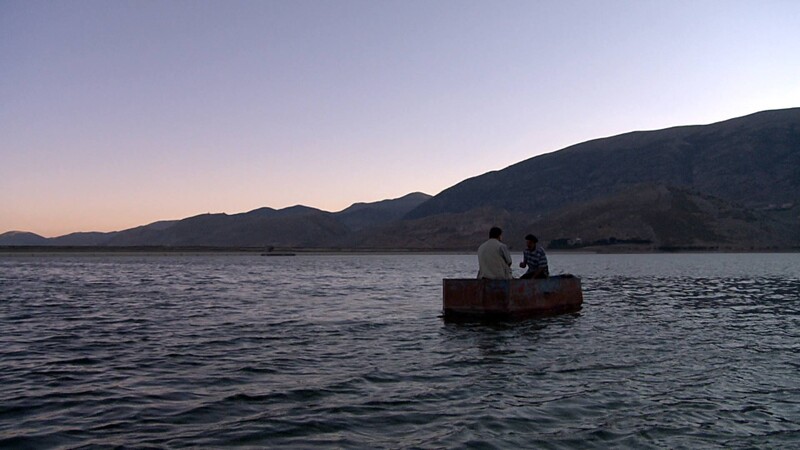Arts and Culture 17 May 2016

Nasri Hajjaj’s unfinished film on the 1972 Munich Olympics attack was screened as planned, defying censorship calls. (via Facebook)
A Palestinian work was screened at the Cannes Film Festival’s Marché du Film as planned on Monday, despite an intense campaign by Israel lobby groups to have it canceled.
Nasri Hajjaj’s Munich: A Palestinian Story was one of four films excerpts of which were screened to industry professionals in collaboration with the Dubai International Film Festival.
Hajjaj told The Electronic Intifada from Cannes that the screening of a 14-minute segment passed without incident and he received a positive response from those present.
As The Electronic Intifada reported last week, France’s main pro-Israel lobby group CRIF had been exerting intense pressure on authorities to ban the film, even enlisting the support of the mayor of Cannes.
CRIF claimed that the film engages in “historical revisionism” about the 1972 raid on the Munich Olympics by the Palestinian group Black September, in which 11 Israeli athletes, a German police officer and five hostage takers died.
But CRIF could not know this since the unfinished documentary had never been publicly screened.
Hajjaj said that CRIF and other critics have made a number of false claims about his film, which they have not seen.
CRIF boss Roger Cukierman even claimed on Twitter that he had been personally assured by Cannes Film Festival president Pierre Lescure that Hajjaj’s film would not be shown.
Some Jewish communal media in France have continued to report falsely that CRIF succeeded in getting the screening canceled through pressure on festival management and contacts with government officials.But the Dubai International Film Festival proceeded with its announced program to screen clips of four works by Arab filmmakers in Cannes.
Hajjaj said that he has been working on the film since 2011, and, as an independent filmmaker, is continuing to seek financial support in order to finish it.
This video clip from Monday’s event shows Hajjaj present along with other featured filmmakers.
The clip also shows that the screening was attended by Ken Loach, who won Cannes’ top prize, the Palme d’Or, in 2006.Loach is a vocal supporter of Palestinian rights.
The Marché du Film bills itself as “the most important event of the film industry and the meeting point of more than 11,000 professionals, including 3,200 producers, 2,300 distributors’ rooms, 1,500 sellers and 790 festival organizers.”
Thus the failure of CRIF to block the showing of Hajjaj’s work is a victory against censorship of free speech and art connected with Palestine.





Comments
Massacre motives weren’t explored
Permalink HHM replied on
Massacre motives weren’t explored
The 1972 Munich Olympics massacre is a memory that’s especially heavy in Eugene, where some of the participating athletes still reside. However, the back story remains little known and unexplored in our press.
I hope Steven Ungerleider’s documentary film will correct that by providing context, including interviews with Palestinians and Israelis familiar with motives for both the abduction and the botched German police rescue attempt.
Black September intended not to kill, but only to hold the athletes hostage and exchange them for 234 political prisoners in Israel. A wrestling coach and a weightlifter who surprised and struggled with the intruders were killed; the weightlifter, who injured one, was the man hideously mutilated.
Palestinian motives remained unrecognized until two brief clips in the two-and-a-half-hour 2005 film “Munich.” Relevant context began in 1948, when Palestine was ethnically cleansed by Zionist terrorism, including 33 documented massacres and three-quarters of a million Palestinians who were driven from their homes, never to return. A second land seizure by Israel in 1967 killed 18,000 Palestinians and dispossessed another 350,000, leaving the West Bank and Gaza under military occupation. Black September offered to exchange the captive athletes for Palestinians imprisoned for resisting that occupation.
Israeli Prime Minister Golda Meir was willing but Defense Minister Moshe Dayan adamantly refused, demanding instead a rescue attempt by unprepared Munich police, despite risking and ultimately costing the athletes’ lives.
A demonized image of Palestinians was thereby reinforced, and repressive Israeli occupation remained unexposed. As usual, private terrorism is abhorred while state terrorism is ignored.
Mariah Leung, Co-director
Al-Nakba Awareness Project
R-G letter: http://tinyurl.com/gtabf99
In response to: http://tinyurl.com/jfkrywh
solidarity
Permalink Eric replied on
I'll guess that Loach said he would pull out if the Palestinian film was censored. Or perhaps just his well-known support for Palestinians was enough. Either way, kudos to him and anyone else who stood up to the censors.
http://www.thenational.ae
Permalink Chris Newbould replied on
http://www.thenational.ae/worl...